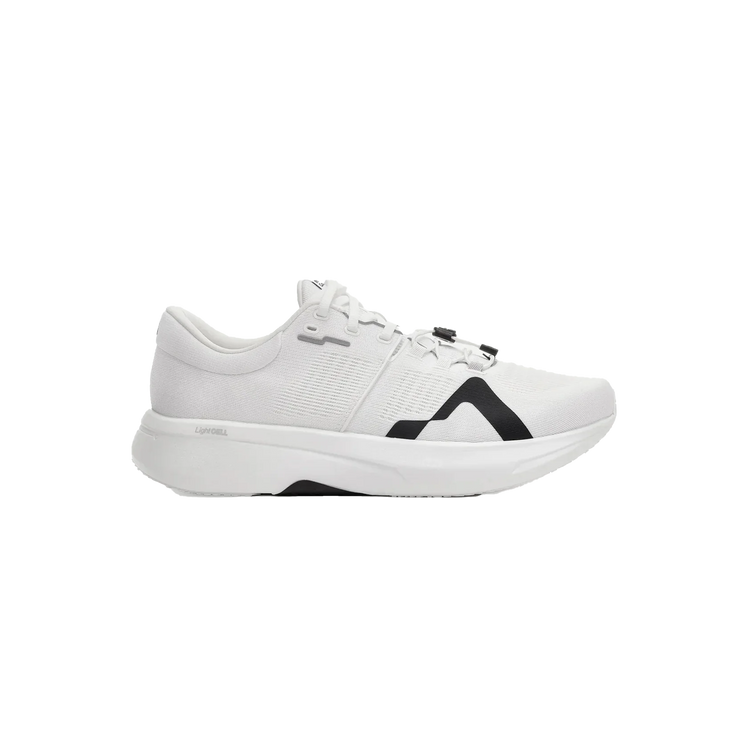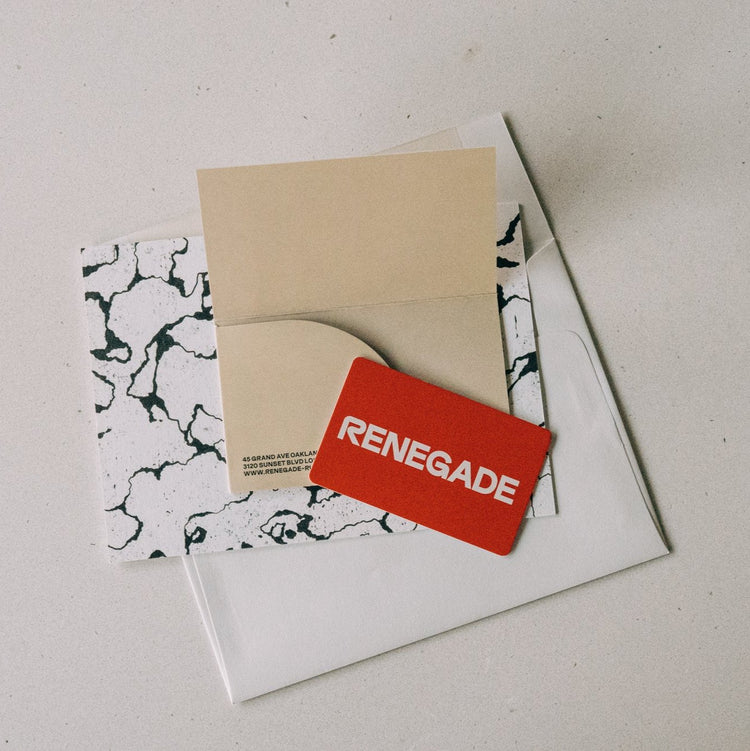Stories
Rosie + Hannah = <3
Running isn't ever just about running. In this piece, Hannah writes a love letter to her best friend, and to running, and to the deep joy of being loved and seen.
What a joy it is to hide and how tragic it is to never be found, I once read. I took a sharp breath in because God, that sounded familiar. I’ve always wanted to hide. I want to hide behind the act of taking care of others, pushing all the love outward so that I rarely have to think about taking any back in. These instincts to hold, to care, to love, to devote, dare I say, are what make me good at what I do. They are the reason this work has turned into life’s work. Working at Renegade and maybe even just being around Renegade makes you a student. A student of Victor, a student of the entire Renegade staff, a student of the community. Listen and hold. Listen and work. Listen and be carried through. We are constantly learning and dreaming and striving and evolving around each other. What a gift it is. And to me, most importantly, I am learning how I want to be loved. But Rosie knew this first.
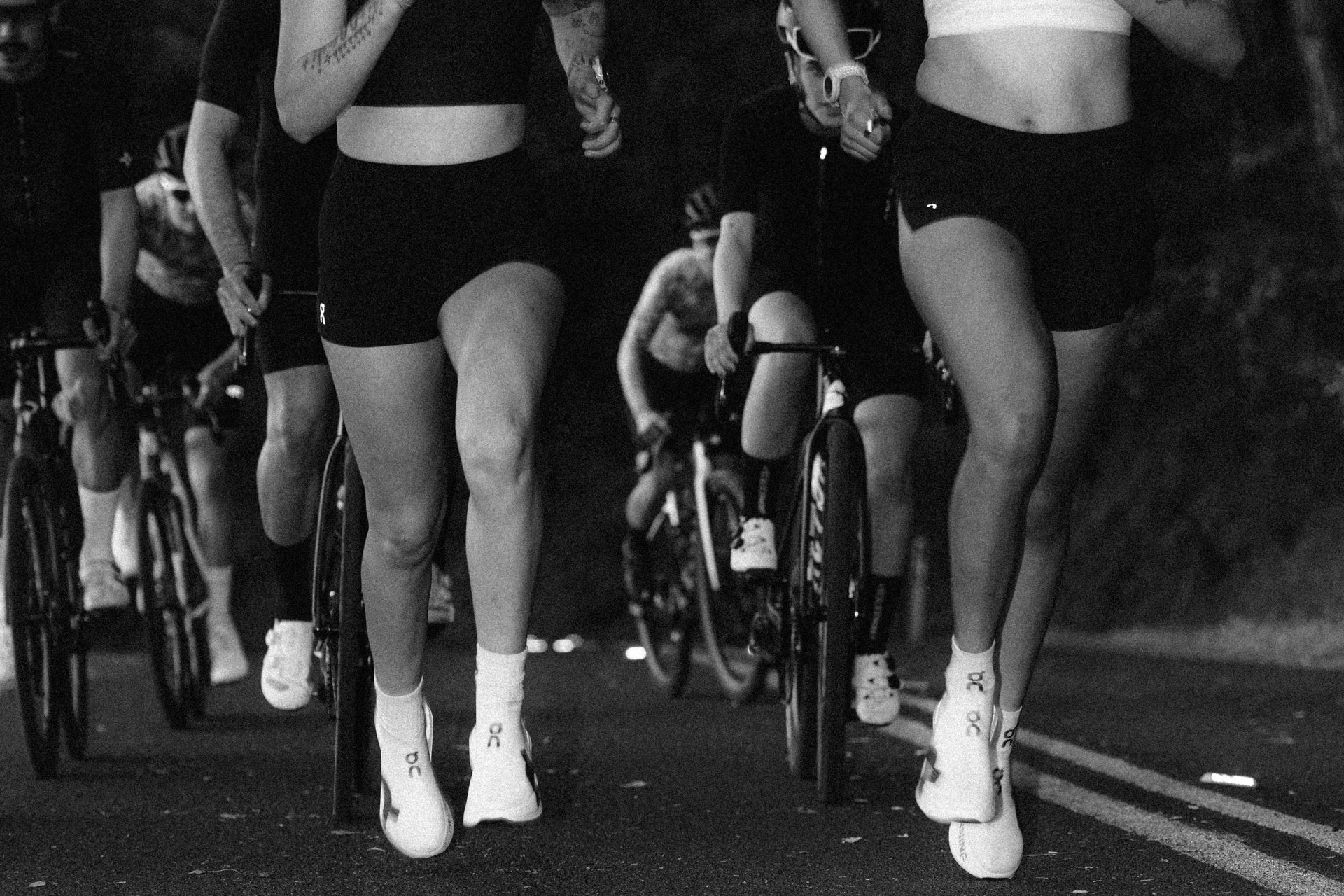
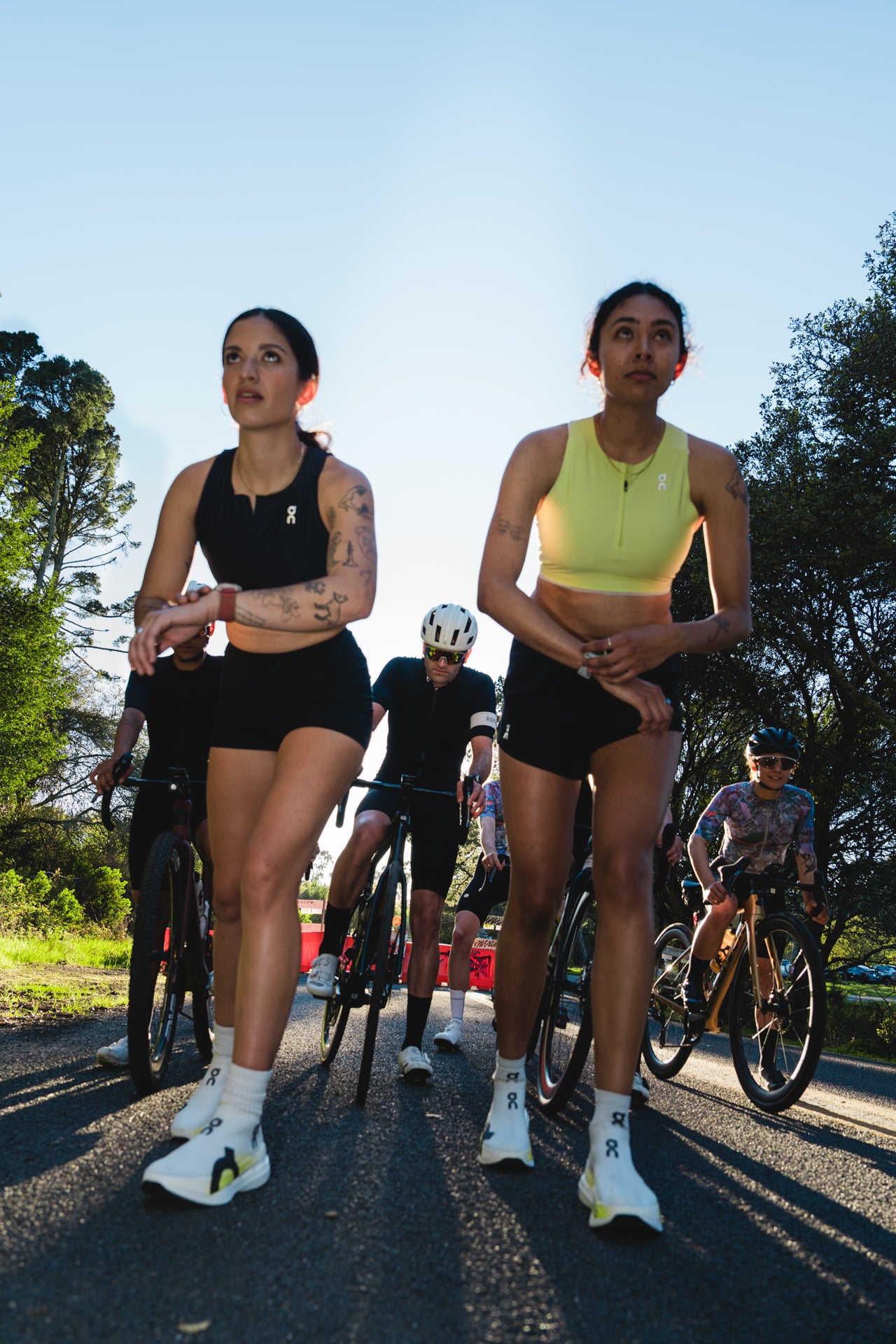
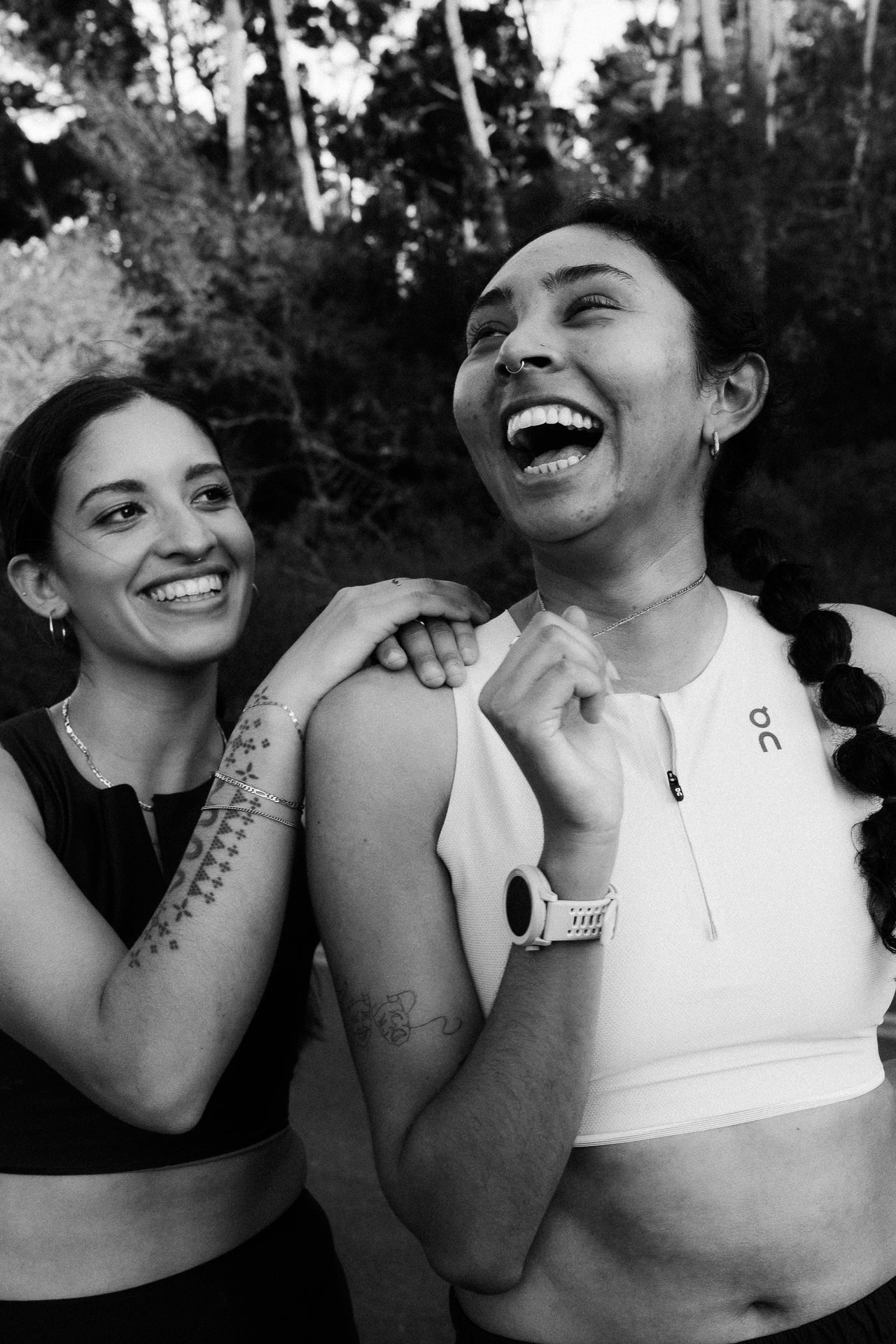
I think that all of us as runners connect so quickly and so deeply because running lays us bare. It’s the straightest path to the soul, the clearest window in. Running makes us strip ourselves of almost everything––of ego, of trauma, of fear, of shame. Time in running is often more cyclical than it is linear. Dizzyingly so. We are sure to hit rock bottom and then there’s the choice of returning to start all over, again and again. And we do, don’t we? We fail and we succeed, often achieving something in the middle of those, all while being witnessed and paying witness to others on the same trajectories––just on different timelines. We have all run alongside someone breathing hard, sweat dripping down the sides of their face, a grimace, losing posture, legs and neck straining, getting through the line no matter what it takes. Do this enough with the same person and you begin to learn their patterns of being, and they, yours. Show up to run and you are offering your strength, sure, but you are also offering out your weaknesses. We hold both.
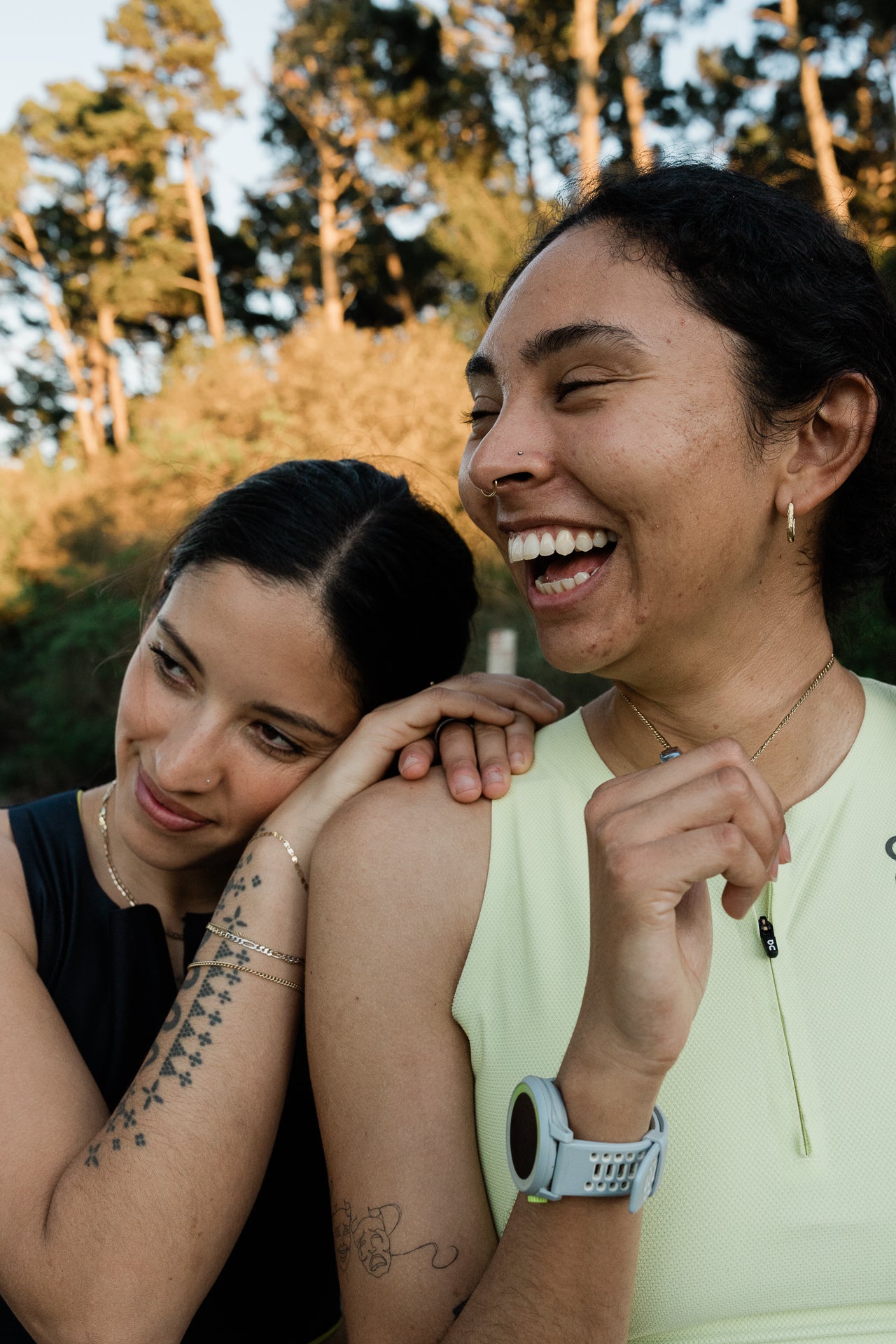
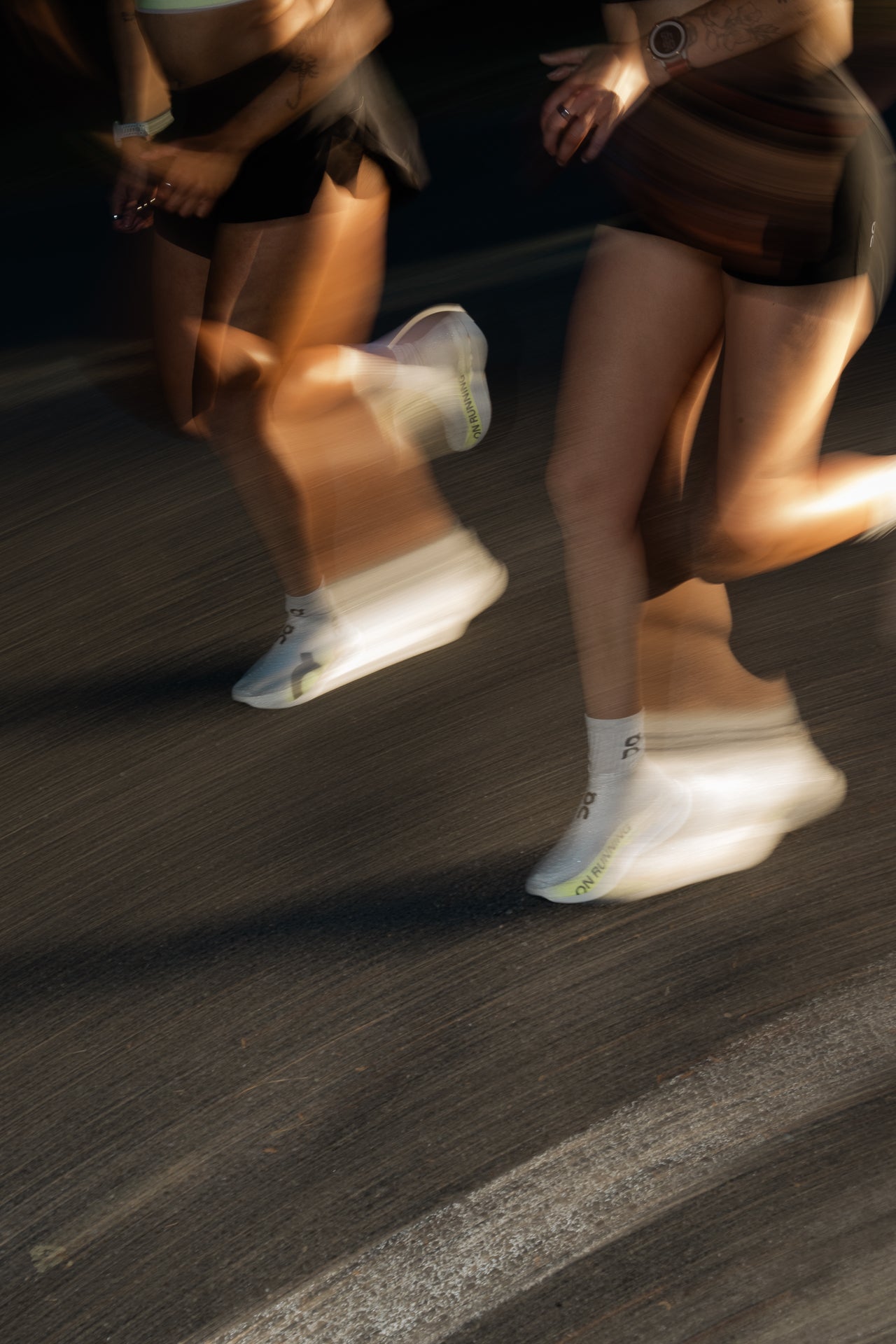
In running, when Rosie is tired, she tilts her head to the side and her stride changes ever so slightly. It’s lower to the ground, not as springy. She moves one arm further across her body than the other. In life, when she’s nervous she laughs at the end of her sentences. She bounces on the ball of her foot. But there is little I love more than when Rosie is happy. It’s a deep joy that fills her whole body. The most carnal and visceral reaction she has is joy. Not sadness, not anger. Love and glee and laughter. How beautiful is that?
I can’t get over this idea, though, that running can be hiding, too. Rosie and I have spent a lot of our running lives on medical exam tables, trying to explain our pain to people who didn’t wish to understand, in MRI machines, on crutches and in boots. We ran underweight with bad DEXA scan scores, desperately wanting to make ourselves small. Running in circles, in every way you can imagine those three words. And this is hiding isn’t it? To make yourself so small as to move so quickly that you’re nearly invisible. When you say you’re fine, you don’t need help, as you stumble around on crutches that are putting burn marks below your armpits. To hide away, as you hop around on one foot to see if your leg still hurts on impact, believing deeply that your body is somehow in every way wrong. I’ve done this enough times that I’m now often fighting the idea that running is trickery, that I’m just trying to see how much I can get away with until something hurts bad enough to stop. That the injuries are when I reach the truth and everything else is a lie.
But this isn’t what Rosie sees. And she won’t let me get to that point. I’ve come to know that there’s no way around it, because our existence is predicated and depends on each other. We’re made of the same things. Through running, our lens of this life, I have watched in awe as she carries herself through a finish line ahead of me. I have listened to her take deep breaths and whisper through a grimace telling me to go, go, go. I have watched her limp on a run and then with her foot in a boot, held her face and wiped her tears away telling her to rest, telling her it’s going to be okay somehow, and then watched that somehow at mile 20 of the Chicago Marathon when in the sea of people I had found her. We locked eyes as she galloped through and I sobbed as she threw her hands in the air and screamed that she was doing it, she was really doing it. That she was. The only way forward is through her eyes.
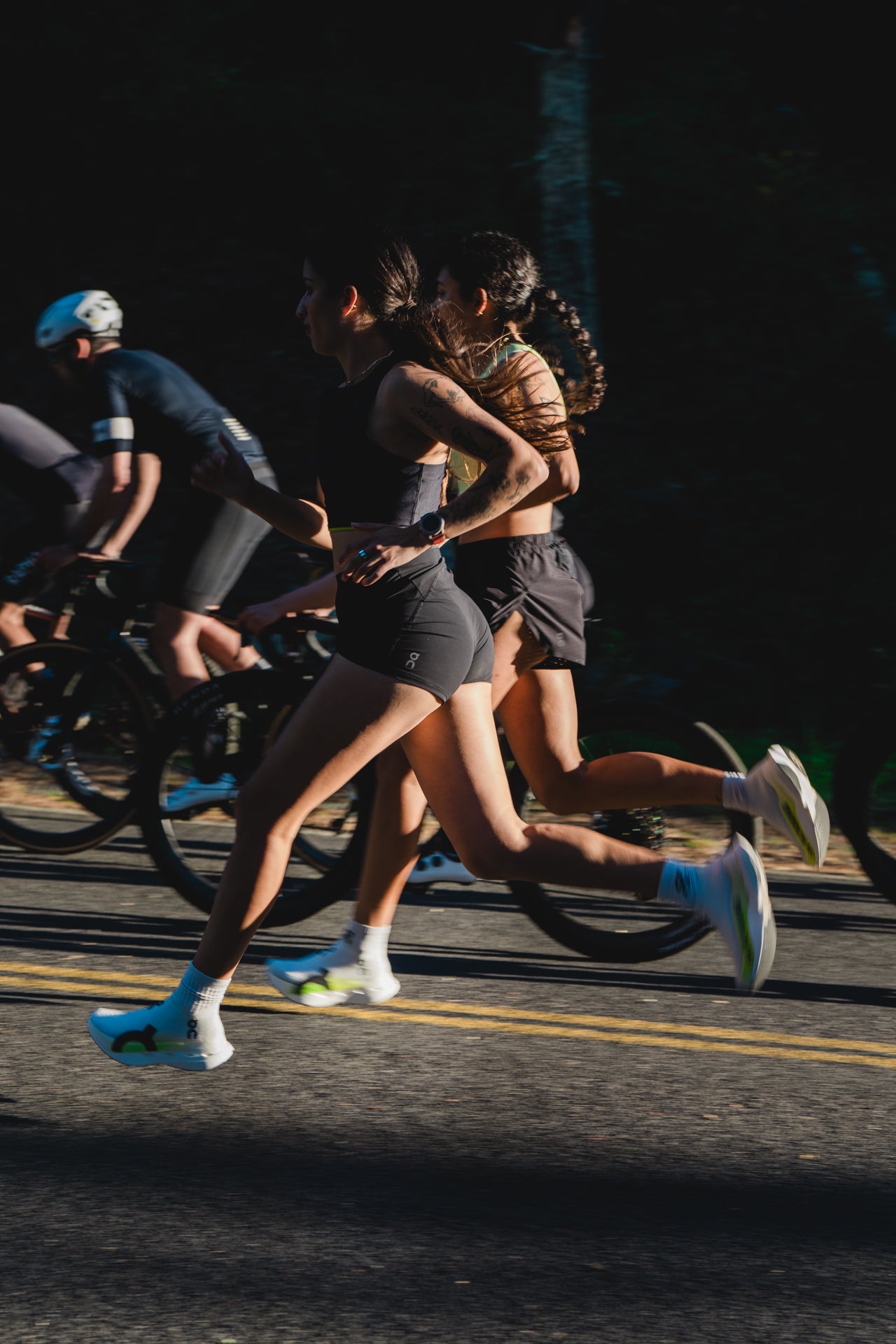
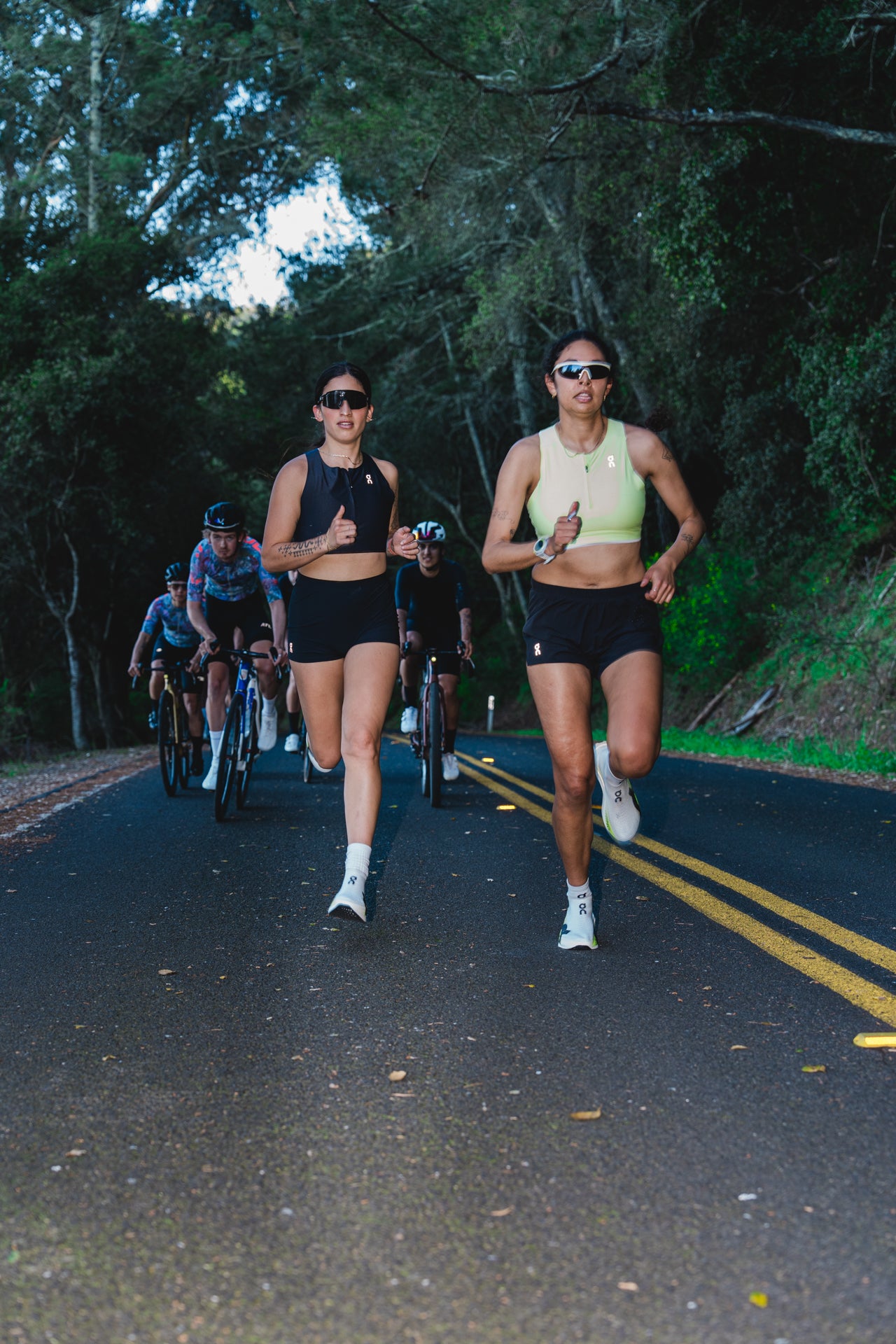
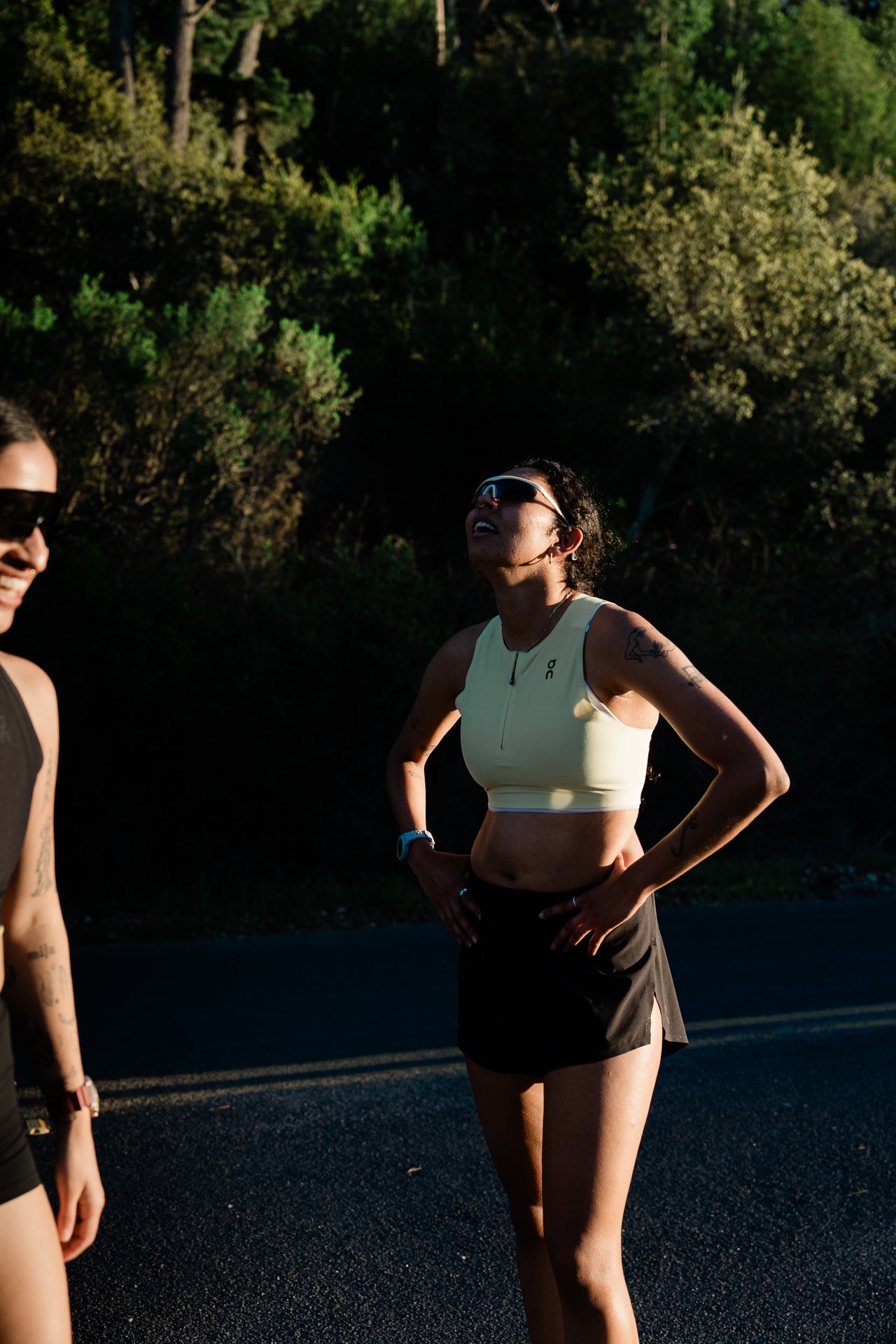
As much as I resist this everywhere else, this idea of being found so terrifying to me, here I surrender. I know I am loved when I cannot hide, when being found is just too truly delightful, such a fucking relief, just like Rosie’s belly laugh.
Girls from such a young age are inculcated with the idea that romantic love, and romantic love from men specifically, are what define our lifetime. That it’s meant to be the thing that finds us and makes us whole, the point from which we grow and become who we are because they love us. All types of love are defining and transforming, that is for sure, but there’s nothing more fiery and intricate and beautiful as the lives that Rosie envisions for us. Rosie and I are surrounded by generations and traditions and habits of women leaning on one another. It’s in our mothers, and our grandmothers. It’s in the women who embraced at finish lines before us—and in the women who embraced us so that we knew how to. In those who also know of Rosie’s laugh like song. It’s in the shops of Renegade. In the precious pairs of you at track night under the lights. This is where we began. And we will carry on the tradition. It’s her and me forever and I mean that. It’s the only thing I’m sure of.


